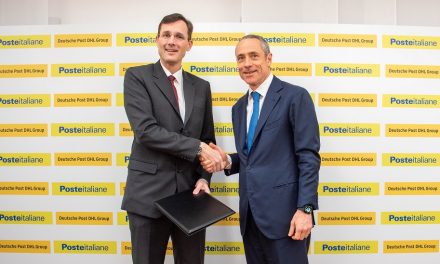
DPDHL “accelerates” its green transformation

Deutsche Post DHL Group has introduced Sustainability-Linked Finance Framework in line with its sustainability targets. With its framework, the Group has created a direct relation between its sustainability strategy and its financing strategy.
The framework enables the issuance of debt instruments (e.g. bonds), whose coupons are linked to the achievement of the Group’s aspirational C02 emissions reduction target. Depending on the Group’s performance towards net-zero emissions logistics, the interest rates of the sustainability-linked debt instruments can change.
“I am very happy about today’s announcement, as I truly believe that integrating our sustainability targets into our financing strategy accelerates the green transformation of Deutsche Post DHL Group. The Sustainability-Linked Finance Framework is an important milestone that shows our commitment towards permanently reducing our company’s carbon footprint. Furthermore our framework is designed to serve as a financial incentive to deliver on our environmental ambitions. This creates trust and transparency for our customers and investors”, said Chief Financial Officer Melanie Kreis.
For the issuance of sustainability-linked debt instruments, Deutsche Post DHL Group will use its absolute annual CO2 emissions as a key performance indicator to determine interest payments. In doing so, the Group is stressing the urgency to decarbonize the entire logistics sector and underscores its commitment towards reducing the Group’s greenhouse gas emissions to below 29 million tonnes of CO2e by 2030. This emissions target is in line with the Paris Agreement and was validated and approved through the Science-Based Targets initiative (SBTi) in October, 2022.
In 2017, the company announced its goal to reduce all logistics-related emissions to net zero by 2050. In doing so, Deutsche Post DHL Group is contributing to the Paris climate protection agreement’s goal of limiting global warming 1.5 degrees Celsius and also supports the United Nations’ Agenda 2030.
Going forward, the framework can be used for long term debt issuances. Missing its ambitious interim environmental target by 2030 will result in higher interest rates to be paid to debt investors. The concrete terms and conditions will depend on individual debt issuances. SEB (Skandinaviska Enskilda Banken AB (publ)) acted as advisor for the development of the framework.










